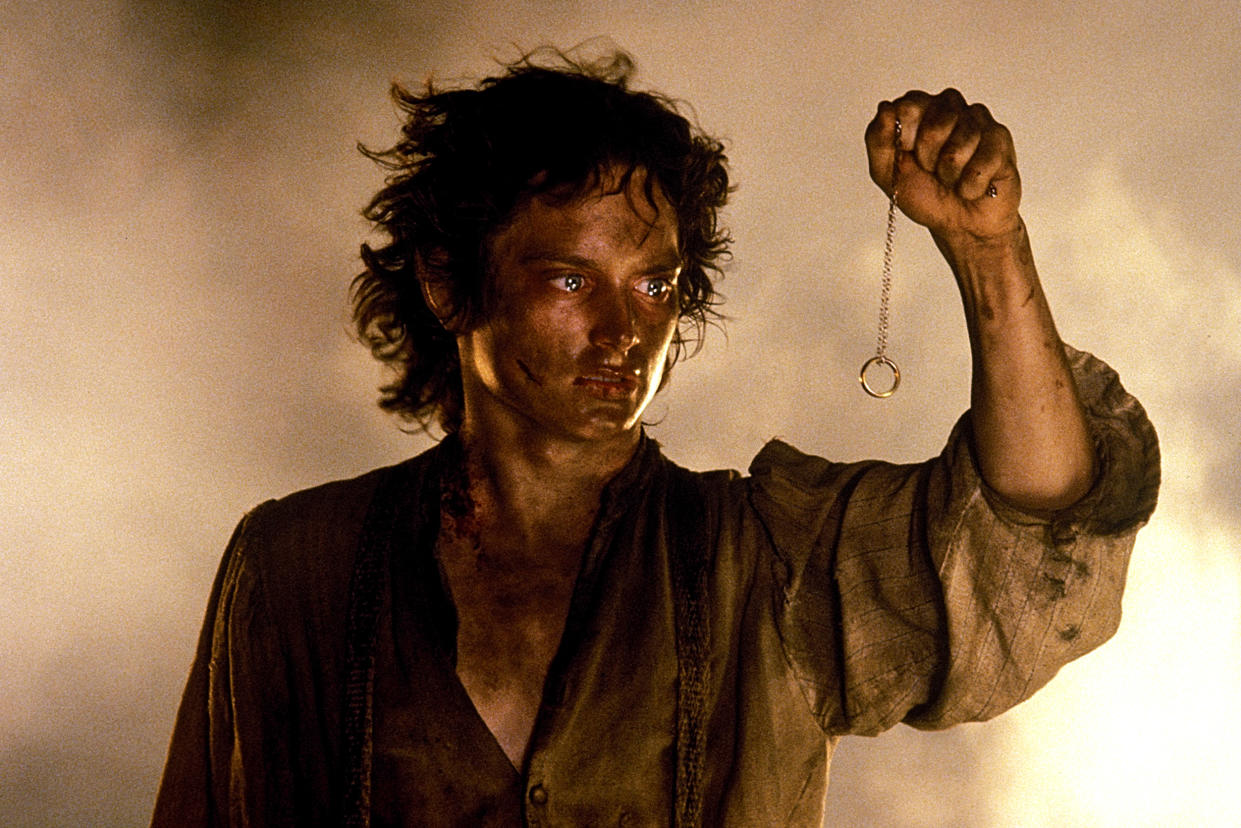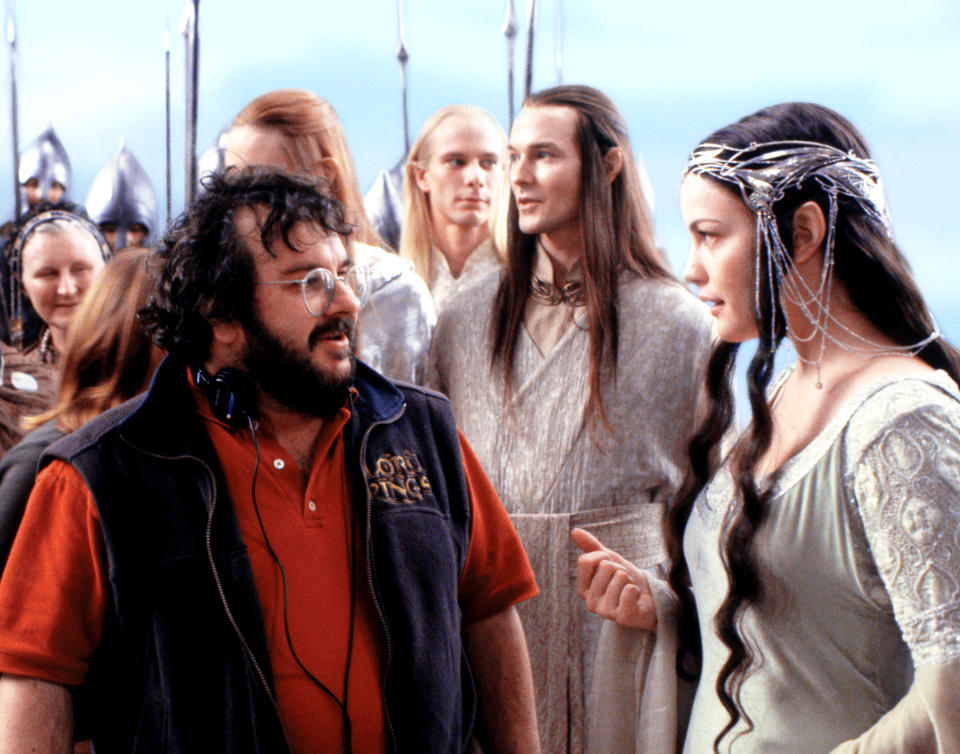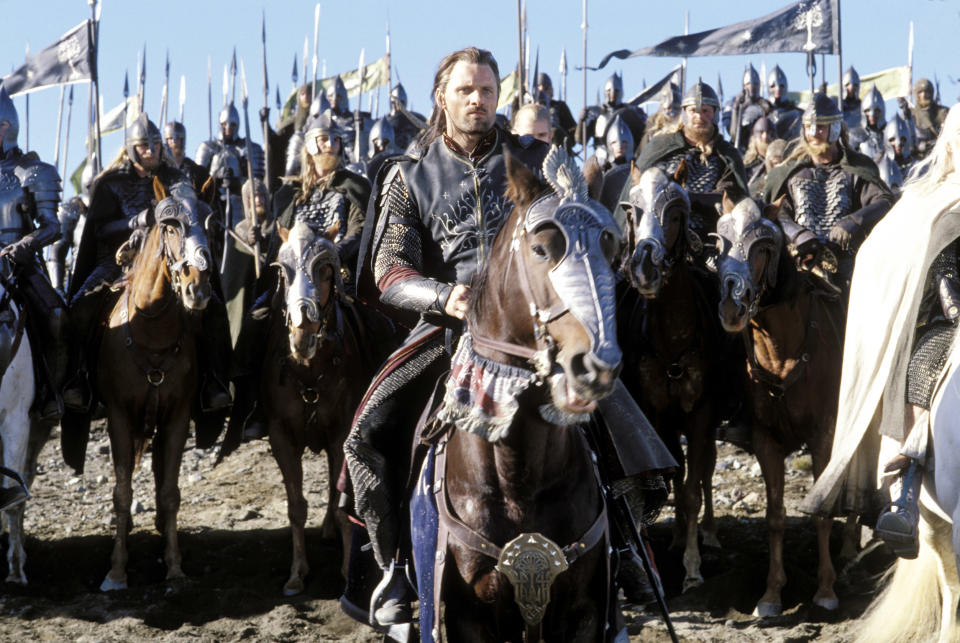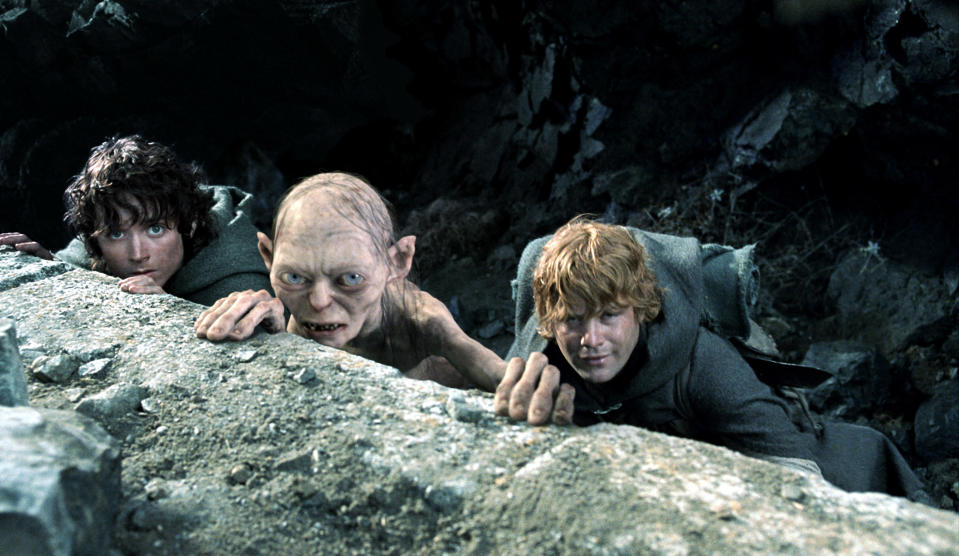'Return of the King' at 15: Why there's no such thing as 'too many endings'

Fifteen years ago, the Dec. 17, 2003, release of The Return of the King brought Peter Jackson’s creatively ambitious and technically audacious Lord of the Rings trilogy to an end. And then another end. And then still another end. And then, at last, a final end. Oh wait, no … make that one more final ending. That more or less summarizes the experience of watching the last 10 minutes of Jackson’s trilogy capper, which squeezes in multiple curtain calls for its large cast of Middle-earth citizens before they leave the stage following the defeat of Sauron and the destruction of his ultimate weapon, the One Ring. At the time and still today, The Return of the King is criticized for taking so many victory laps — affectionately ridiculed by some, and less so by others.
Rings co-writer Philippa Boyens has heard all the “too many endings” wisecracks before. Her working relationship with Jackson and his partner and creative collaborator, Fran Walsh, dates back to the late ’90s, when the trio started the process of adapting J.R.R. Tolkien’s monumental work of fantasy for the screen. Sticking the landing is always the most difficult part of any trilogy — just ask the Wachowski sisters, Sam Raimi or, for that matter, George Lucas — and The Return of the King is particularly challenging, given all the characters who need to say their farewells to the audience that has followed them through a combined 12 hours of screen time. (Not helping matters is the fact that Tolkien’s own book takes a long while to arrive at a conclusion; in fact, the writers famously cut an entire section of the novel’s denouement.) “I know we get a lot of flak for the multiple endings,” Boyens remarked when she and Walsh spoke with Yahoo Entertainment at New York Comic Con in October. “But can I just for the record say, ‘I don’t give a s***’? We weren’t ending one film; we were ending three films.”

That’s the argument that Jackson himself makes in a separate phone interview just before the release of Mortal Engines, the post-apocalyptic adventure movie he co-wrote and executive produced with Walsh and Boyens. “I didn’t think of it as being a single movie — I looked at it in the context of the full story,” he explains. “To me, it was a situation where we were wrapping up a 12-hour film, and it’s appropriate to have a sort of tail to the story. I don’t have any regrets.”
At the risk of being labeled apologists, we’re with them.The Lord of the Rings was released before cinematic universes were ascendant — apart from Star Wars and Star Trek, there were very few big-screen franchises at the time that could boast a consistent continuity and mythology. The series offered a portal into a massive world filled with memorable characters and epic conflicts. True, Jackson and his team were working from pre-existing material, but they still had the unenviable task of turning Tolkien’s immersive prose into an equally immersive onscreen reality. In the run-up to the release of the first chapter in the saga, The Fellowship of the Ring, many doubted whether a director best known for acclaimed low-budget curiosities like Dead Alive and Heavenly Creatures could oversee a fantasy blockbuster that the entire world would want to see.
That question was definitively answered when Fellowship arrived in movie theaters in December 2001, and quickly racked up a nearly billion-dollar global box-office take. The Two Towers earned even more the following December, and then Return of the King crossed the billion-dollar mark in 2003. Meanwhile, each entry in the trilogy scored multiple Oscar nominations, achieving a cumulative total of 30.

Perhaps the series’s true legacy lies in the impact it had on fandom. Fan fiction, fan conventions and fan cosplay all existed before Lord of the Rings, of course, but these movies — along with the equally popular Harry Potter film franchise — arrived in theaters just as social media united fans around the globe into one giant commercial force. Fifteen years later, the Marvel Cinematic Universe is arguably the one fandom that rules them all, but in 2003, it felt as if The Return of the King was the only movie that mattered. We’d passionately followed Frodo, Samwise, Gandalf, Eowyn, Aragorn, Gimli and Gollum for three years and genuinely got choked up at the thought of saying farewell to them. Hence, the extended goodbyes, which were ultimately more for the fans than the characters.
“We were always so conscious that the audience chose these films,” Boyens says now. “Filmgoers chose this world, and came to it — they discovered it. And then they informed a lot of it, too, because they had a passion for these characters. We started getting letters, some of them quite incredible, and we realized what these films were meaning for people out there. It became quite a responsibility.” In fact, Walsh reveals that she was motivated to write “Into the West” — the moving song that plays over King‘s closing credits, after Frodo and Gandalf have sailed away for the Undying Lands, while Sam stays behind — in direct response to the fan mail they received. “All we could do was respond to the people who wrote to us with as much compassion as we could, because that’s the lesson of the book. It was this parallel experience in that way; there will never be another film like it for us.”
It’s worth noting that there’s never been another Oscar winner like The Return of the King in the past 15 years either. Nominated for 11 statues at the 76th Annual Academy Awards, the film took home every single one, including Best Director, Best Cinematography and Best Picture. “It’s a clean sweep,” Steven Spielberg memorably proclaimed before handing Jackson the Best Picture award, giving King the record for the largest sweep in Oscar history. “What was great is that it wasn’t just me winning an Oscar or Fran winning an Oscar,” Jackson says, reflecting on that historic evening nearly two decades later. “It was seeing so many of our team win. It was a long job, a seven-year job, so to see so many of our crew members getting Oscars was really satisfying.”

Return of the King is also the only Best Picture winner in recent history to gross over $300 million — proof that a “popular” film can also be recognized by an awards body as an artistic achievement without having to create a separate category. Asked about the controversy over the now-abandoned plan to create a “popular film Oscar” for movies like Black Panther, Jackson makes it clear he’s not a supporter. “I don’t think it’s a very good idea. I understand why they’re doing it and what they’re doing it for, but it really is a TV ratings thing. What we did with Return of the King is show that a popular film can actually win. If it’s a great movie, it doesn’t matter how expensive or successful it is — it’s just a great movie and should find its own way into Oscar consideration on its own merits.” And for the record, those merits can include too many endings.
The Lord of the Rings trilogy is available to stream on Amazon Prime.
Read more from Yahoo Entertainment:


